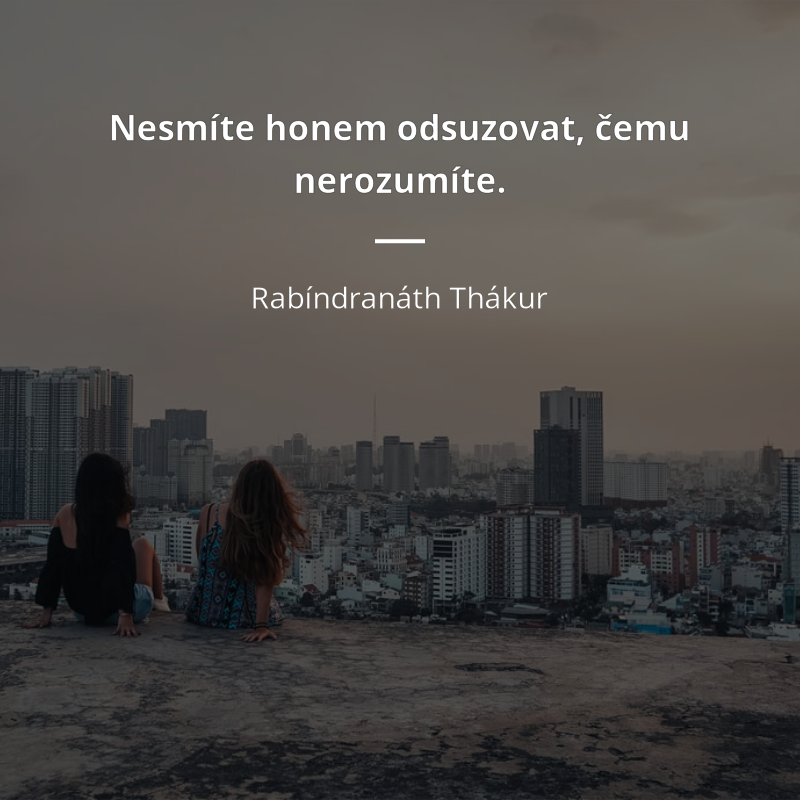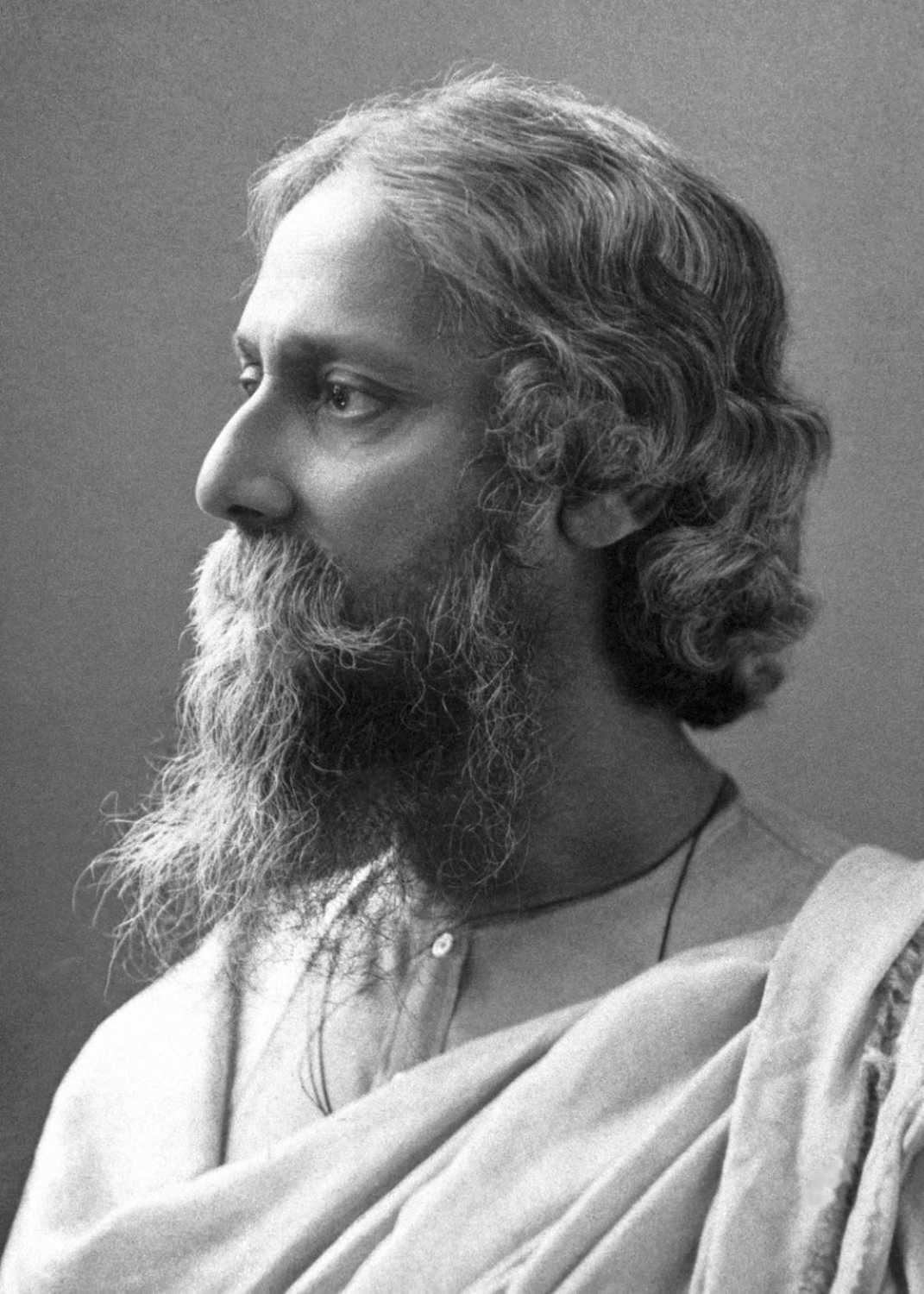Rabíndranáth Thákur nejznámější citáty
Rabíndranáth Thákur: Citáty o pravdě
Rabíndranáth Thákur: Citáty o smrti
Rabíndranáth Thákur citáty a výroky

„Neobětujme slabé silným, chceme-li se sami zachránit.“
Varianta: Neobětujte slabé silným, chcete-li se sami zachránit.

„Radost je jednota naší duše, jednota naší duše se světem.“
Zdroj: [Exley, Helen, Pro klid v duši 365 : Citáty na každý den, Zuzana Pavlová, Slovart, Praha, 2018, 368, 978-80-7529-518-7, 267]
Rabíndranáth Thákur: Citáty anglicky
"Nationalism in the West", 1917. Reprinted in Rabindranath Tagore and Mohit K. Ray, Essays (2007, p. 475). Also cited in John Jesudason Cornelius, Rabindranath Tagore: India's Schoolmaster, (1928, p. 83).
“To be outspoken is easy when you do not wait to speak the complete truth.”
128
Stray Birds (1916)
Glimpses of Bengal http://www.spiritualbee.com/tagore-book-of-letters/ (1921)
“To the guests that must go, bid God's speed and brush away all traces of their steps.”
45
The Gardener http://www.spiritualbee.com/love-poems-by-tagore/ (1915)
“Every person is worthy of an infinite wealth of love — the beauty of his soul knows no limit.”
Glimpses of Bengal http://www.spiritualbee.com/tagore-book-of-letters/ (1921)
Glimpses of Bengal http://www.spiritualbee.com/tagore-book-of-letters/ (1921)
37
Gitanjali http://www.spiritualbee.com/gitanjali-poems-of-tagore/ (1912)
“Night's darkness is a bag that bursts with the gold of the dawn.”
213
Stray Birds (1916)
“That I exist is a perpetual surprise which is life.”
22
Stray Birds (1916)
74
The Gardener http://www.spiritualbee.com/love-poems-by-tagore/ (1915)
“Praise shames me, for I secretly beg for it.”
207
Stray Birds (1916)
"Nationalism in the West", 1917. Reprinted in Rabindranath Tagore and Mohit K. Ray, Essays (2007, p. 489). Also cited in Parmanand Parashar, Nationalism: Its Theory and Principles in India (1996, p. 213-14).
Rabindranath Tagore, Gora, translated into English, Calcutta, 1961. Quoted from Goel, S. R. (2016). History of Hindu-Christian encounters, AD 304 to 1996. Chapter 13 ISBN 9788185990354 https://web.archive.org/web/20120501043412/http://voiceofdharma.org/books/hhce/
R. Tagore, `Aatmaparichapa' in his book `Parichaya' http://hindusamhati.blogspot.com/2013/05/thoughts-of-rabindranath-tagore-on.html
“Those who have everything but thee, my God, laugh at those who have nothing but thyself.”
226
Stray Birds (1916)
Preface
Sādhanā : The Realisation of Life http://www.spiritualbee.com/spiritual-book-by-tagore/ (1916)
Interview with Einstein (1930)
“Let this be my last word, that I trust in thy love.”
326
Stray Birds (1916)
“Swamy Shraddananda’, written by Rabindranath in Magh, 1333 Bangabda; compiled in the book ‘Kalantar’.
Rabindranath Tagore, Essays, Nationalism in Japan, Atlantic Publishers & Dist, 2007 p.471, and quoted in A Look at India From the Views of Other Scholars, by Stephen Knapp https://www.stephen-knapp.com/a_look_at_india_from_the_views_of_other_scholars.htm
